Is there a way to use a loop that takes the first 100 items in a big list, does something with them, then the next 100 etc but when it is nearing the end it automatically shortens the "100" step to the items remaining.
Currently I have to use two if loops:
for (int i = 0; i < listLength; i = i + 100)
{
if (i + 100 < listLength)
{
//Does its thing with a bigList.GetRange(i, 100)
}
else
{
//Does the same thing with bigList.GetRange(i, listLength - i)
}
}
Is there a better way of doing this? If not I will at least make the "thing" a function so the code does not have to be copied twice.
